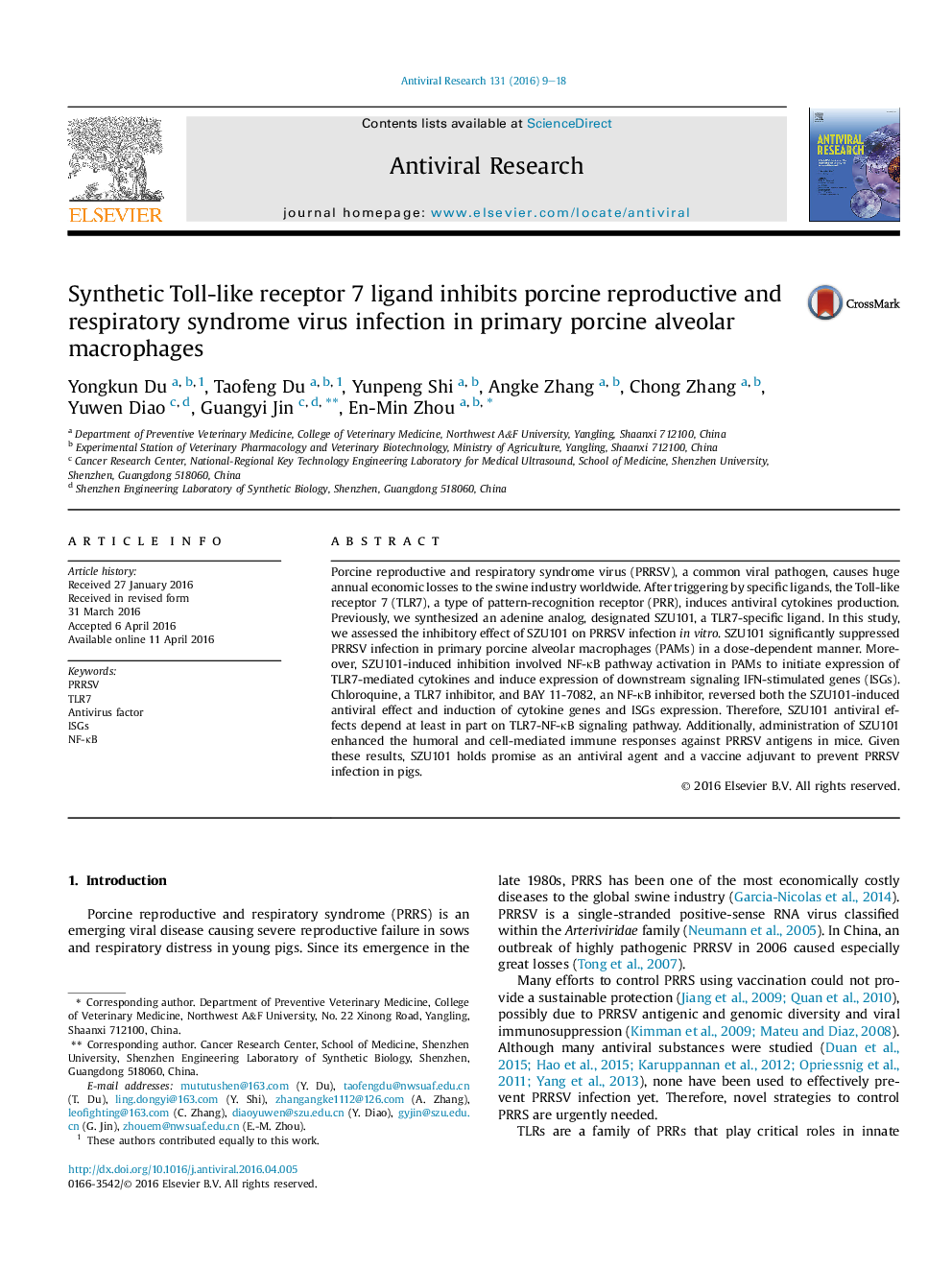| Article ID | Journal | Published Year | Pages | File Type |
|---|---|---|---|---|
| 5821733 | Antiviral Research | 2016 | 10 Pages |
Abstract
Porcine reproductive and respiratory syndrome virus (PRRSV), a common viral pathogen, causes huge annual economic losses to the swine industry worldwide. After triggering by specific ligands, the Toll-like receptor 7 (TLR7), a type of pattern-recognition receptor (PRR), induces antiviral cytokines production. Previously, we synthesized an adenine analog, designated SZU101, a TLR7-specific ligand. In this study, we assessed the inhibitory effect of SZU101 on PRRSV infection in vitro. SZU101 significantly suppressed PRRSV infection in primary porcine alveolar macrophages (PAMs) in a dose-dependent manner. Moreover, SZU101-induced inhibition involved NF-κB pathway activation in PAMs to initiate expression of TLR7-mediated cytokines and induce expression of downstream signaling IFN-stimulated genes (ISGs). Chloroquine, a TLR7 inhibitor, and BAY 11-7082, an NF-κB inhibitor, reversed both the SZU101-induced antiviral effect and induction of cytokine genes and ISGs expression. Therefore, SZU101 antiviral effects depend at least in part on TLR7-NF-κB signaling pathway. Additionally, administration of SZU101 enhanced the humoral and cell-mediated immune responses against PRRSV antigens in mice. Given these results, SZU101 holds promise as an antiviral agent and a vaccine adjuvant to prevent PRRSV infection in pigs.
Related Topics
Life Sciences
Immunology and Microbiology
Virology
Authors
Yongkun Du, Taofeng Du, Yunpeng Shi, Angke Zhang, Chong Zhang, Yuwen Diao, Guangyi Jin, En-Min Zhou,
